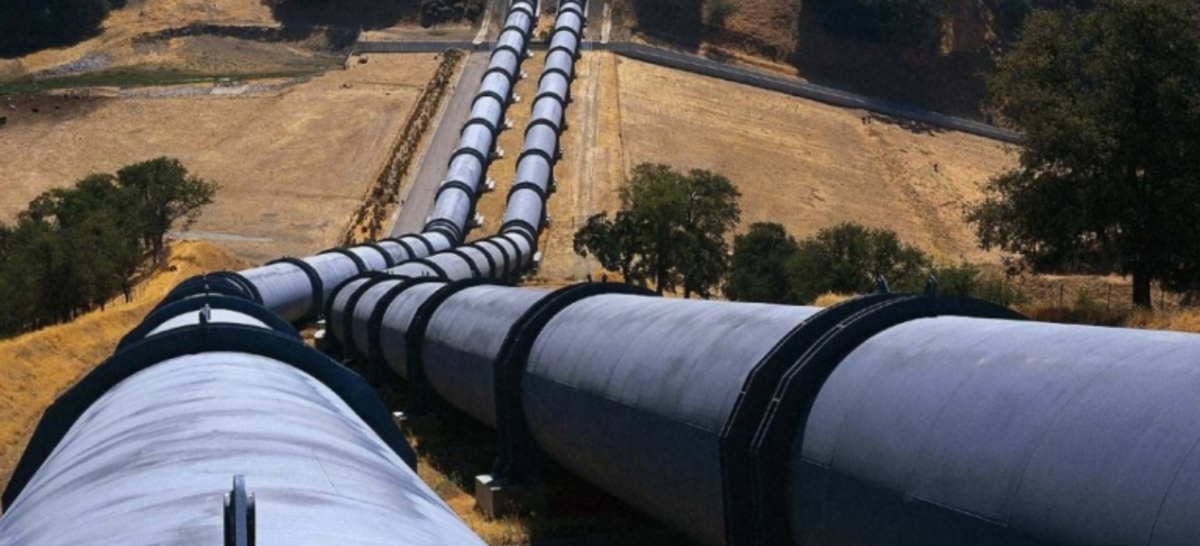

On December 22, 2021, a panel of judges of the HACC Appeals Chamber consisting of Daniila Chornenka, Mykola Hlotov, Inna Kaluhina, Andrii Nykyforov, and Oleh Pavlyshyn changed the jurisdiction from the High Anti-Corruption Court to the Bahliiskyi District Court of Dniprodzerzhynsk in one of the proceedings in the case of part of the Samara-Western Direction oil product pipeline.
We are talking about criminal proceedings against Olha Konoplina, ex-deputy director of the state enterprise Ukrainian State Research and Design Institute of Nitric Industry and Organic Synthesis Products. She is accused of abusing her powers and misleading the court.
It was her false conclusions that became the basis for the refusal of the Economic Court of the Rivne oblast to recognize the ownership of part of the Samara — Western Direction oil product pipelines by the state in 2017. As a result, the oil product pipeline passed from the state to commercial ownership of persons who are associated with Viktor Medvedchuk, MP from the OPFL Party. By the way, the conclusions are completely refuted by the expert examination conducted during the investigation.
How does the HACC justify its decision?
Most of the HACC judges of the panel appeal to the fact that the case is not subject to consideration by the HACC, considering the subject criterion. Allegedly, at the time of committing a criminal offense, Olha Konoplina held a position that was not included in the list of article 216, part 5, clause 1 of the Criminal Procedural Code of Ukraine. The prosecutor’s office and the State Property Fund supported the motion.
However, one of the judges of the panel, Mykola Hlotov, feels otherwise. He thinks that Konoplina’s criminal proceedings are subject to HACC jurisdiction. The judge bases his arguments on a broader and more systematic interpretation of the legislation, which, in fact, TI Ukraine agrees with.
However, it should be clearly understood that the separation of materials is the right of the prosecutor. In accordance with article 127, part 6 of the Criminal Procedural Code, such a decision is not contested. Thus, the HACC delivered a judgement, which is formally legal. At the same time, considering the interests of the investigation and the arguments of Judge Hlotov, such a court decision may create risks of procedural sabotage in the future.
Why did the Samara — Western Direction oil product pipeline become a bone of contention?
The fact is that this is a strategic object that has an important national economic and defense significance. It stretches for 1,433 kilometers and connects Ukraine with Russia and Belarus. This pipeline also supplies diesel fuel with a volume of up to 2 million tons per year, or about 20% of the Ukrainian diesel fuel market.
After the collapse of the Soviet Union, the right to the pipeline was supposed to become the property of Ukraine, but the subsidiary of the Russian AK Transnefteprodukt did not transfer such a right. Only in 2011, the oil product pipeline was transferred to Ukraine by the decision of the Economic Court of the Rivne oblast. Subsequently, this decision was confirmed by the Appeal and High Economic courts, but the adventures with the transfer of the pipeline did not end there.
In 2015, the Economic Court of the Rivne oblast overturned the decision due to “newly discovered circumstances,” and in 2017 — recognized the ownership of TOV Prykarpatzakhidtrans. That is, the oil product pipeline was again privately owned.
On February 19, 2021, the National Security and Defense Council decided to return the pipeline to public ownership. Although a similar decision was made by the previous composition of the National Security and Defense Council in 2015, at that time, the government did not comply with it. On February 23, 2021, the High Anti-Corruption Court seized a part of the Samara — Western Direction main oil product pipeline and transferred it to the management of the National Asset Recovery and Management Agency.
Most of the HACC judges of the panel appeal to the fact that the case is not subject to consideration by the HACC, considering the subject criterion. However, one of the judges of the panel, Mykola Hlotov, thinks that Konoplina's criminal proceedings are subject to HACC jurisdiction.






